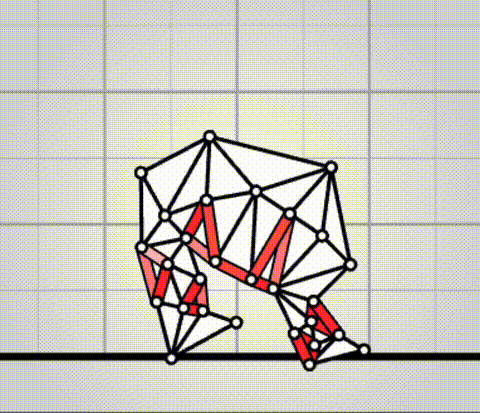C++ Updated 2025-07-16
C plus plus is what you get when you want to have all of:
Superconducting temperature Updated 2025-07-16
Tetrapod Updated 2025-07-16
Includes:
- amphibians
- amniotes, which includes:
- sauropsida: reptiles and birds, which really are reptiles
- mammals
The exact relationships between those clades is not very clear as there's a bunch of extinct species in the middle we are not sure exactly where they go exactly, some hypothesis are listed at: en.wikipedia.org/w/index.php?title=Tetrapod&oldid=1053601110#Temnospondyl_hypothesis_(TH)
Voltmeter Updated 2025-07-16
AI training robot Updated 2025-07-16
It doesn't need to be a bipedal robot. We can let Boston Dynamics worry about that walking balance crap.
It could very well instead be on wheels like arm on tracks.
Or something more like a factory with arms on rails as per:
- Transcendence (2014)
- youtu.be/MtVvzJIhTmc?t=112 from Video "Rotrics DexArm is available NOW! by Rotrics (2020)" where they have a sliding rail
Algovivo demo
. github.com/juniorrojas/algovivo: A JavaScript + WebAssembly implementation of an energy-based formulation for soft-bodied virtual creatures. Alain Aspect Updated 2025-07-16
Diffraction of light Updated 2025-07-16
Zettelkasten Updated 2025-07-16
zettelkasten.de/posts/overview/ mentions one page to rule them all:
How many Zettelkästen should I have? The answer is, most likely, only one for the duration of your life. But there are exceptions to this rule.
Alan Watts controlled dream of life talk Updated 2025-07-16
Goes along: if you could control your life multiple times to be perfect, you would eventually get tired of paradise, and you would go further and further into creating uncertain worlds with some suffering, until you would reach the current real world.
Very similar to The Matrix (1999) when Agent Smith talks about the failed Paradise Matrix shown at www.youtube.com/watch?v=9Qs3GlNZMhY:
Did you know that the first Matrix was designed to be a perfect human world where none suffered, where everyone would be happy? It was a disaster. No one would accept the program. Entire crops were lost. Some believed that we lacked the programming language to describe your "perfect world". But I believe that, as a species, human beings define their reality through misery and suffering. So the perfect world was a dream that your primitive cerebrum kept trying to wake up from.
Albuquerque, New Mexico Updated 2025-07-16
Digital micromirror device Updated 2025-07-16
The Insane Engineering of DLP by Zack Freedman (2022)
Source. Google Cloud Platform Updated 2025-07-16
Sandy Lerner Updated 2025-07-16
This chick is hardcore.
Cytoskeleton Updated 2025-07-16
One major advantage: eukaryotes can do phagocytosis due to their cytoskeleton.
Debye model Updated 2025-07-16
Wikipedia mentions that it is completely analogous to Planck's law.
Perihelion precession of Mercury Updated 2025-07-16
Subtle is the Lord by Abraham Pais (1982) page 22 mentions that when Einstein saw this in 1915, he was so excited he couldn't work for three days.
Narcissism Updated 2025-11-05
Super-resolution microscopy Updated 2025-07-16
Super-resolution means resolution beyond the diffraction limit.
They you can observe fluorophores firing one by one. Their exact position is a bit stochastic and beyond the diffraction limit, but so long as there aren't to many in close proximity, you can wait for it to fire a bunch of times, and the center of the Gaussian is the actual location.
From this we see that super-resolution microscopy is basically a space-time tradeoff: the more time we wait, the better spacial resolution we get. But we can't do it if things are moving too fast in the sample.
Tradeoff with cryoEM: you get to see things moving in live cell. Electron microscopy fully kills cells, so you have no chance of seeing anything that moves ever.
Caveats:
- initial illumination to saturate most fluorophores I think can still kill cells, things get harder the less light you put in. So it's not like you don't kill things at all necessarily, you just get a chance not to
- the presence fluorophore disturbs the system slightly, and is not at the same Exact location of the protein of interest
De novo Updated 2025-07-16
International Organization for Standardization Updated 2025-07-16
There are unlisted articles, also show them or only show them.

